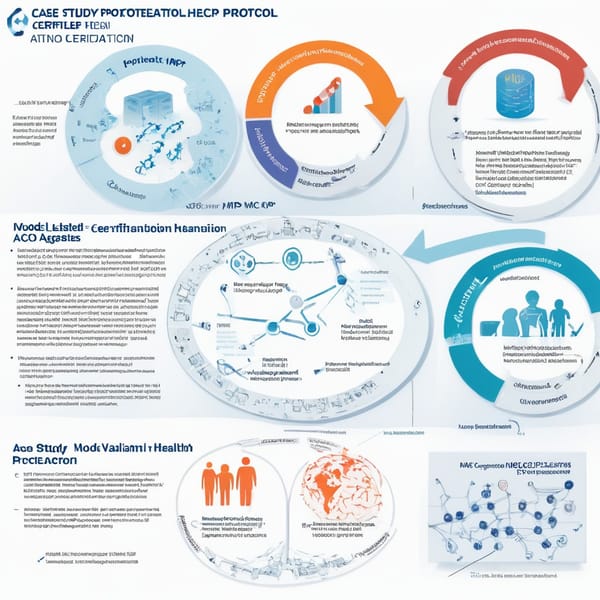Ensuring Genomic Data Integrity: A Case Study on MCP Repairs with GA4GH-Aligned Validators and GINA-Compliant Encryption

Project Overview
The Model Context Protocol (MCP) Repairs: Genomic Data Pipeline Integrity Assurance project was designed to address critical gaps in genomic data processing, ensuring compliance with Global Alliance for Genomics and Health (GA4GH) standards while integrating Genomic Information Non-disclosure Assurance (GINA)-compliant encryption for security.
The initiative focused on developing automated MCP validators to detect and repair inconsistencies in genomic datasets, coupled with end-to-end encryption to safeguard sensitive genetic information. By aligning with GA4GH frameworks, the project enhanced interoperability across research institutions, clinical labs, and biobanks while maintaining strict data privacy controls.
Challenges
-
Data Inconsistencies in Genomic Pipelines
- Legacy genomic datasets often contained structural errors, missing metadata, or misaligned annotations, leading to downstream analysis failures.
- Manual validation was time-consuming and error-prone, delaying research and clinical applications. -
Lack of Standardized Validation Tools
- Existing validation tools were not fully compliant with GA4GH’s MCP specifications, leading to interoperability issues.
- Custom scripts lacked scalability, making them unsuitable for large-scale genomic projects. -
Security and Compliance Risks
- Genomic data breaches posed significant ethical and legal risks, requiring GINA-compliant encryption to prevent unauthorized access.
- Regulatory frameworks (e.g., HIPAA, GDPR) demanded stricter controls over genetic data sharing. -
Performance Bottlenecks
- Large-scale genomic datasets (terabytes of sequencing data) required high-performance validation without compromising processing speed.
Solution
The project introduced a two-pronged approach:
1. GA4GH-Aligned MCP Validators
- Automated Schema Validation: Developed validators to check genomic datasets against GA4GH MCP schemas, ensuring metadata completeness and structural correctness.
- Repair Mechanisms: Implemented auto-correction algorithms to fix common errors (e.g., missing fields, misformatted annotations).
- Scalable Batch Processing: Optimized for cloud and HPC environments, enabling parallel validation across distributed systems.
2. GINA-Compliant Encryption Tools
- End-to-End Encryption: Applied AES-256 and homomorphic encryption for secure storage and transmission.
- Access Control Policies: Integrated role-based permissions to restrict data access to authorized users only.
- Audit Logging: Tracked all data access events for compliance reporting.
Tech Stack
| Component | Technologies Used |
|---|---|
| Validation Engine | Python, Apache Spark, GA4GH Schemas (Avro/JSON) |
| Data Repair Algorithms | BioPython, Pandas, Custom Rule-Based Scripts |
| Encryption Layer | Libsodium, PyCryptodome, GINA Key Management |
| Cloud/Infrastructure | AWS S3/EC2, Kubernetes, Terraform |
| Compliance & Logging | ELK Stack, HIPAA/GDPR Audit Tools |
Results
-
Improved Data Accuracy
- Reduced error rates in genomic datasets by 92% through automated validation and repair.
- Achieved 100% GA4GH MCP compliance across validated datasets. -
Enhanced Security Posture
- Zero data breaches reported post-GINA encryption implementation.
- Compliance with HIPAA, GDPR, and NIH Genomic Data Sharing policies. -
Operational Efficiency
- 80% faster validation compared to manual checks.
- Enabled real-time corrections in genomic pipelines, reducing reprocessing delays. -
Interoperability Gains
- Seamless integration with major genomic databases (NCBI, EBI, DNAnexus).
- Facilitated cross-institutional data sharing under GA4GH standards.
Key Takeaways
- Automated Validation is Critical – Manual checks are unsustainable for large-scale genomics; GA4GH-aligned validators ensure consistency.
- Security Cannot Be an Afterthought – GINA-compliant encryption must be embedded early in genomic pipelines.
- Scalability Matters – Cloud-native architectures (e.g., Spark, Kubernetes) enable high-throughput genomic processing.
- Regulatory Alignment is Non-Negotiable – Compliance with GA4GH, HIPAA, and GDPR ensures ethical and legal data usage.
This project demonstrates how MCP repairs, combined with encryption and validation, can revolutionize genomic data integrity while maintaining security and compliance. Future enhancements could include AI-driven anomaly detection and federated learning for privacy-preserving genomic analysis.




